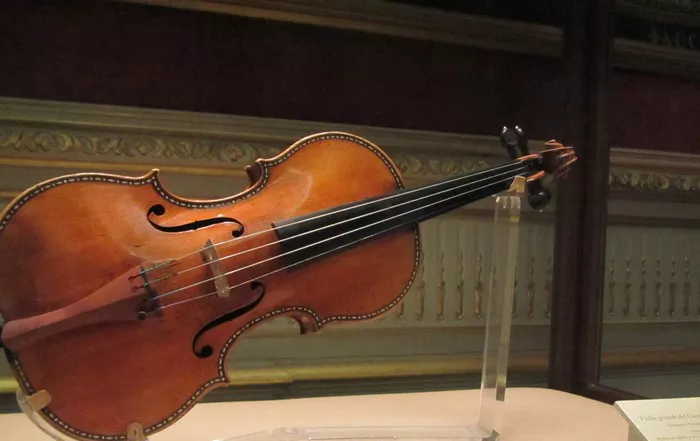The world of classical music is a realm of exquisite precision and unwavering discipline. Among the many instruments that grace this hallowed domain, the violin stands out as a true masterpiece, requiring not only immense skill but also a deep understanding of the instrument’s nuances. One peculiar phenomenon often observed among violinists is the occasional shaking or trembling of their hands during performances or practice. This phenomenon has piqued the curiosity of both musicians and audiences alike. In this article, we delve into the intricacies of why violinists shake their hands, exploring the physiological, psychological, and performance-related factors that contribute to this intriguing occurrence.
Physiological Factors of Violinist’s Hand Tremor
Physiological factors contributing to a violinist’s hand tremor include muscle fatigue from the instrument’s demanding posture and movements, as well as the body’s nervous system response, which can be triggered by anxiety and stage fright. Additionally, skipping warm-up exercises can leave the muscles unprepared for the rigorous demands of violin playing, potentially leading to trembling hands. Understanding these physiological elements is crucial in addressing the complex issue of hand tremors among violinists, as it lays the foundation for implementing effective strategies to reduce this phenomenon and enhance their musical performances.
The Psychology of Performance Anxiety
The psychological aspect of hand tremors in violinists cannot be underestimated. Performance anxiety is a widespread concern among musicians, and it can manifest in various ways, including trembling hands. Here are some key psychological factors contributing to this phenomenon:
1. Anxiety and Pressure
When performing in front of an audience or during a high-stakes concert, violinists often experience a heightened level of anxiety and pressure. The fear of making a mistake or not meeting the audience’s expectations can trigger anxiety, which, in turn, can lead to trembling hands.
2. Self-Doubt and Perfectionism
Many violinists are perfectionists who hold themselves to exceptionally high standards. They often harbor self-doubt and the fear of making even the slightest error. This fear can manifest as trembling hands, as the body’s response to the stress of perfectionism.
3. Fear of Judgment
Musicians often invest significant emotional energy into their performances, and the fear of judgment from peers, critics, or the audience can be overwhelming. This fear can contribute to heightened anxiety and trembling hands.
Performance-Related Factors
Beyond physiological and psychological factors, several performance-related elements can contribute to hand tremors in violinists. These factors are rooted in the intricate nature of playing the violin and the challenges it presents:
1. Technical Complexity
The violin is known for its technical complexity. The precision required to hit the right notes, execute intricate bowing techniques, and maintain proper finger placement can lead to performance-related stress. This stress can manifest as trembling hands, especially when attempting difficult passages.
2. Physical Stress
In addition to the intricate techniques, violinists often must sustain physically demanding postures for extended periods. The weight of the instrument on the shoulder and the need to maintain precise hand positions can lead to muscle fatigue and trembling hands.
3. Bowing Pressure
Controlling the bow’s pressure and speed is fundamental to producing the desired sound on the violin. Maintaining consistent bowing pressure can be challenging, and any deviations can affect the quality of sound produced. This added pressure can contribute to trembling hands during performance.
Coping Strategies and Solutions
Understanding why violinists shake their hands is only the first step. The next crucial aspect is how musicians can cope with this phenomenon and minimize its impact on their performances. Here are some effective strategies and solutions:
1. Relaxation Techniques
Muscle tension is a primary contributor to hand tremors. Violinists can benefit from incorporating relaxation techniques into their practice routines. These may include deep breathing exercises, progressive muscle relaxation, or mindfulness meditation to reduce anxiety and muscle tension.
2. Proper Warm-Up
Warming up before practice or performance is essential. Violinists can perform
gentle stretching exercises to loosen their hand and arm muscles, allowing them to adapt gradually to the demands of playing the instrument.
3. Performance Preparation
Mental preparation is key to managing performance anxiety. Musicians can benefit from techniques such as visualization and positive self-talk to build confidence and reduce anxiety. Additionally, they should rehearse in conditions that simulate the performance environment to become more accustomed to the pressure.
See Also: What Violins Do Professionals Use: What You Need To Know
Conclusion
The phenomenon of violinists shaking their hands is a multifaceted issue with physiological, psychological, and performance-related components. It is crucial for both aspiring and seasoned musicians to understand the factors that contribute to hand tremors and to develop effective coping strategies. Through relaxation techniques, proper preparation, and seeking professional guidance when needed, violinists can strive for optimal performance while managing the challenges that come with mastering this exquisite instrument. In the world of classical music, where precision and artistry intertwine, the journey to steady hands is an integral part of the path to musical excellence.


